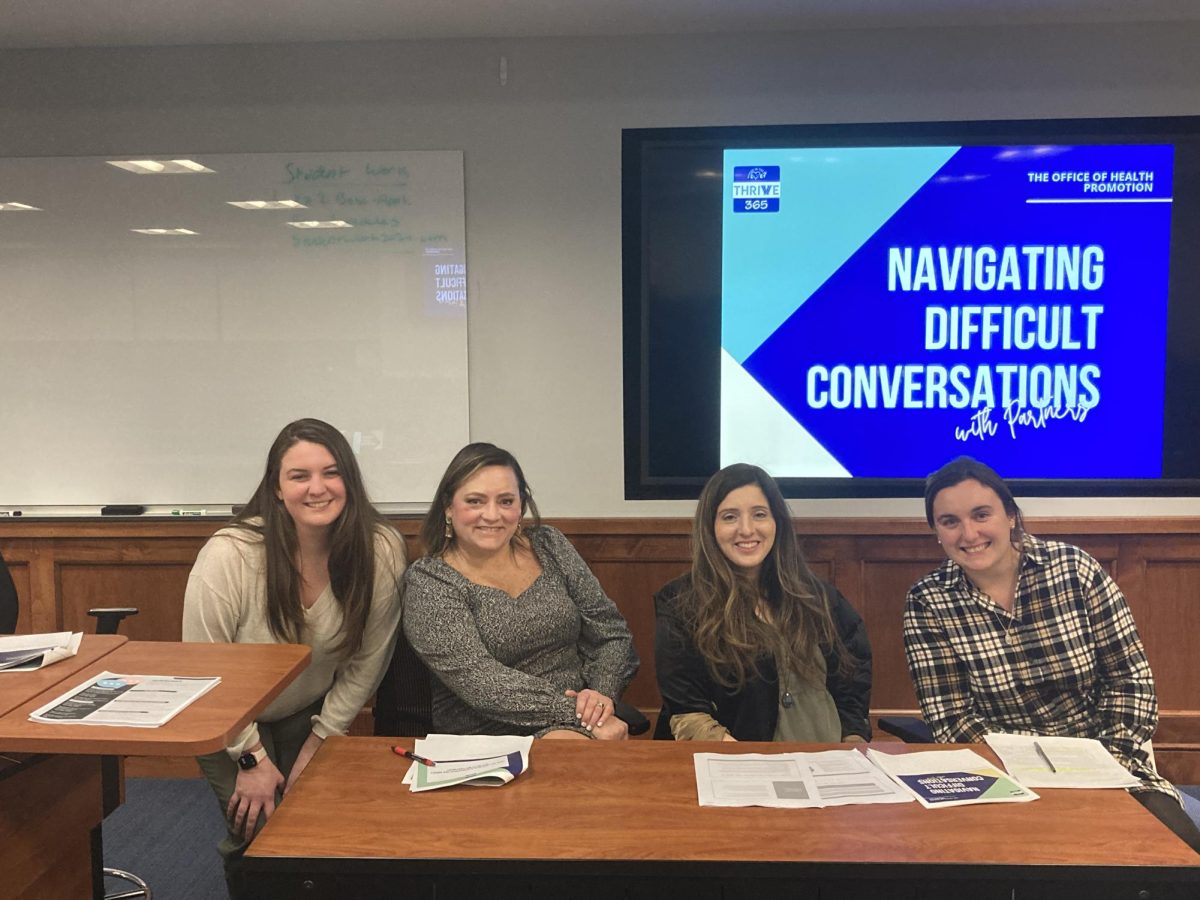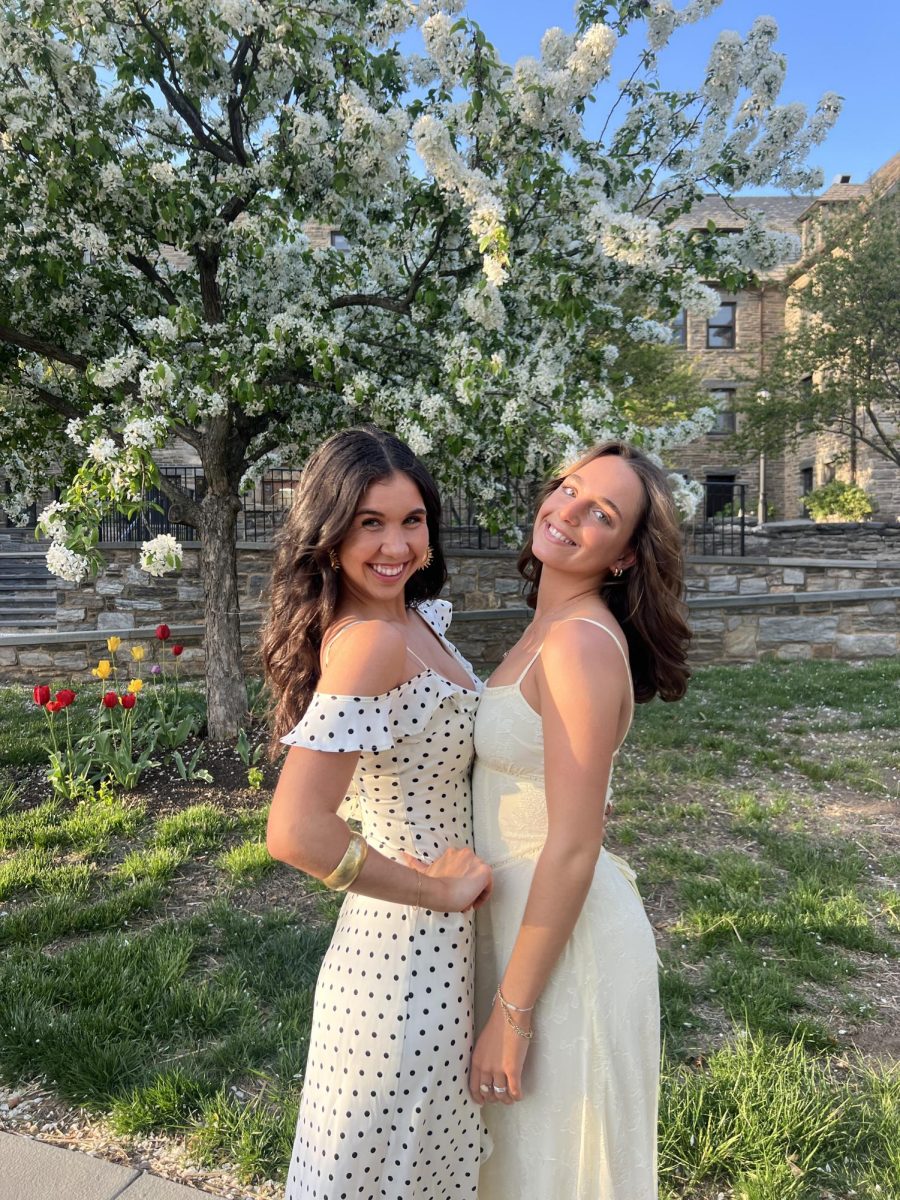“Mistakes can teach you a lot about things, so take them as they come.” This was the advice of Candice Linehan from the Delaware County Victim Assistance Center. She said this during the most recent relationship-based Navigating Difficult Conversations workshop that took place on Feb. 1 in Bartley Hall.
Headed by Dr. Stacy Andes from the Office of Health Promotion, the Navigating Difficult Conversations workshop series aims to assist college students in handling common difficult areas of student life, such as potential issues with professors and roommates. The most recent workshop featured four intelligent women who work in the fields of psychology and counseling. They shared tips for improving connections and building communication skills for young couples.
Shannon Barnett, Villanova’s Title IX Case Manager, was the head of the panel. Assisting her and Linehan were Natalie Sheridan, a clinical psychologist who works in the University Counseling Center, and Gabby Southworth, a Villanova alumna and Administrative Assistant from the Office of University Advancement.
“Together, they bring a current and informed perspective on how to identify unhealthy and abusive relationships,” Andes said, speaking about the panel.
Throughout the workshop, the panelists proposed questions regarding relationship struggles, followed by various pieces of advice on how to handle these situations. Some of these questions included, “What makes a conversation difficult?” and “What [does a] healthy boundary setting look like?”
The panelists introduced the idea of the “And?” question as a useful tool for young couples. When utilizing this method, one must phrase questions for their partner in such a way that allows the pair to reach a solution that benefits both parties. By taking a partner’s feelings into consideration when asking a question, one can demonstrate a humble care for their partner’s experiences and enhance camaraderie.
Another prominent topic discussed in the workshop was setting boundaries. According to Sheridan, there are two types of boundaries: physical and private. Physical boundaries encompass the degree of physical affection someone is comfortable with his or her partner being. Private boundaries encompass emotional needs, such as whether someone shares something that is bothering them with their partner right away or needs space first. It should be noted that even in a healthy relationship, bounds will be negotiated, but it is critical to communicate when they are being neglected or violated.
“My one piece of advice would be to look at this time in college as a time to identify and recognize your boundaries in relationships,” Andes said when asked about her advice to students. “You are learning as much about yourselves as you are about your future professions and careers in college. Use this tremendous network of support that you have here to think about what you want in your relationships of all kinds.”
For more resources about how to handle difficult conversations, visit the University Counseling Center website at https://www1.villanova.edu/university/health-services/counseling-center.html. Additional resources include the Delaware County Victim Assistance Center and the One Love Foundation for ending emotional abuse in young couples.







